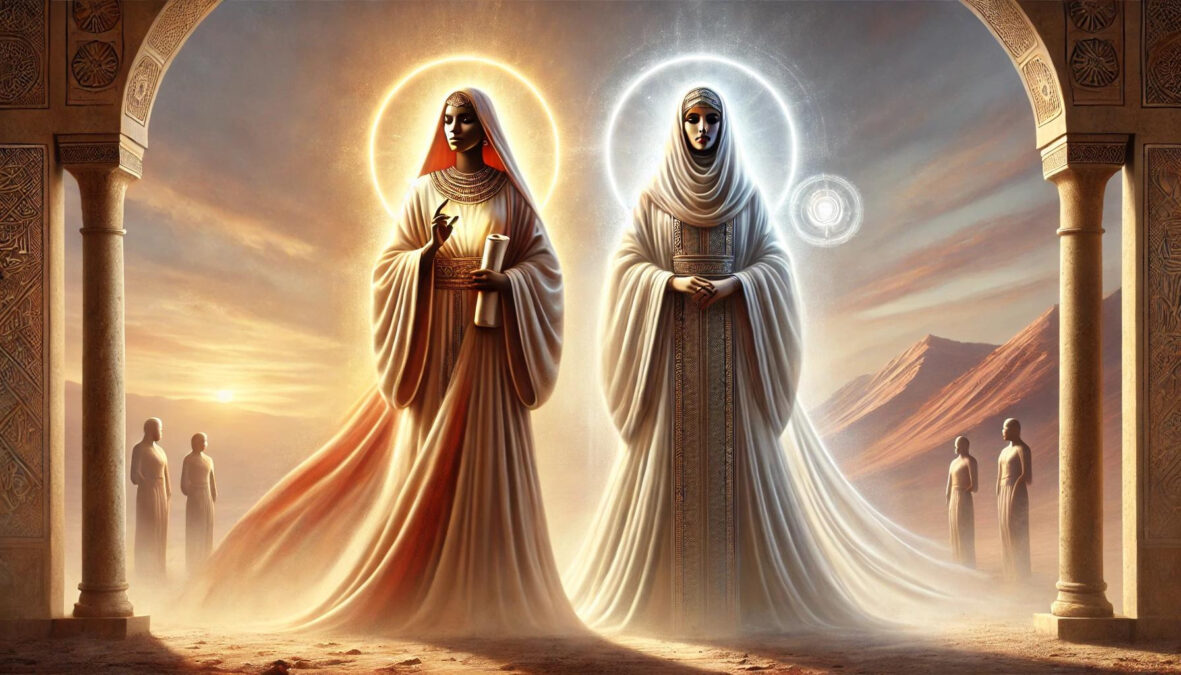When we think of the early days of Christianity and Islam, images of male disciples and prophets often come to mind. But behind these great movements were women whose leadership and contributions were crucial to spreading these faiths. Two of these women—Mary Magdalene and Khadijah—stood at the heart of their respective religious movements, shaping the lives of Jesus and Muhammad and the trajectory of two of the world’s greatest religions.
Mary Magdalene: The First Witness and Messenger
Mary Magdalene was more than just a follower of Jesus; she was one of his closest confidants and the first person to witness the most pivotal moment in Christian history: the resurrection. The Gospels recount how, after the crucifixion, Mary Magdalene remained by the tomb, grieving and searching for her teacher. Her loyalty and devotion were rewarded when she became the first to encounter the risen Christ.
In that moment, Mary was not just a witness; she became the “apostle to the apostles.” Jesus entrusted her with the sacred task of delivering the news of his resurrection to the other disciples—arguably the most important message in Christian history. She was chosen for this role not by accident but because of her unwavering faith and deep understanding of Jesus’ teachings.
Despite this, later Christian tradition often reduced Mary Magdalene to a sinner or a peripheral figure, distorting her true role in the early Christian community. But in reality, Mary was a spiritual leader, a woman who stood by Jesus when many others fled, and the bearer of the message that would shape the future of the Christian faith.
Khadijah: The First Believer and Champion of Islam
In the early days of Islam, Khadijah bint Khuwaylid was not only the first person to accept Muhammad’s message but also his most devoted supporter. A successful businesswoman in her own right, Khadijah was a woman of immense wealth and influence in Meccan society. When Muhammad, her husband, received his first revelation, it was Khadijah who comforted him, believed in his prophetic mission, and urged him to embrace his role as the messenger of God.
Khadijah’s financial and emotional support was crucial in the survival and spread of Islam in its infancy. Her wealth allowed Muhammad to dedicate himself fully to his mission without the need for material concerns. She also shielded him from the intense opposition he faced from the Quraysh, standing by his side when many others doubted or turned away.
More than just a wife, Khadijah was Muhammad’s confidant, protector, and partner in his life’s most significant spiritual journey. Her unwavering belief in him provided the strength he needed to carry forward the message of Islam in the face of adversity. Muhammad held her in the highest regard even after her death, often speaking of her with reverence and gratitude.
Reclaiming the Forgotten Legacy of Women’s Leadership
Both Mary Magdalene and Khadijah were pioneers in their respective faiths. Their leadership, faith, and support helped shape the religious movements that would spread across the world. And yet, as these faiths became institutionalized, the contributions of women like Mary and Khadijah were often sidelined, and their roles diminished in favor of patriarchal structures.
In Christianity, Mary Magdalene’s role as the first to witness and proclaim the resurrection was largely overshadowed by male apostles in later church teachings. In Islam, Khadijah’s monumental support and leadership in the early days of the faith have not always been given the prominence they deserve in historical narratives.
Today, as we grapple with the consequences of patriarchal leadership—conflict, greed, and a lack of compassion—it is time to reclaim the feminine leadership that these two women exemplified. Mary Magdalene and Khadijah showed us that leadership rooted in faith, loyalty, and care has the power to transform societies.
By revisiting their stories, we remind ourselves that compassionate, inclusive leadership was at the heart of these spiritual traditions from the very beginning. It’s time to honor their legacy and reflect on the profound impact women can have in creating a more balanced, peaceful, and just world.








Add your first comment to this post